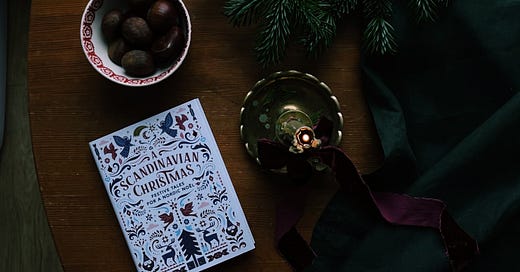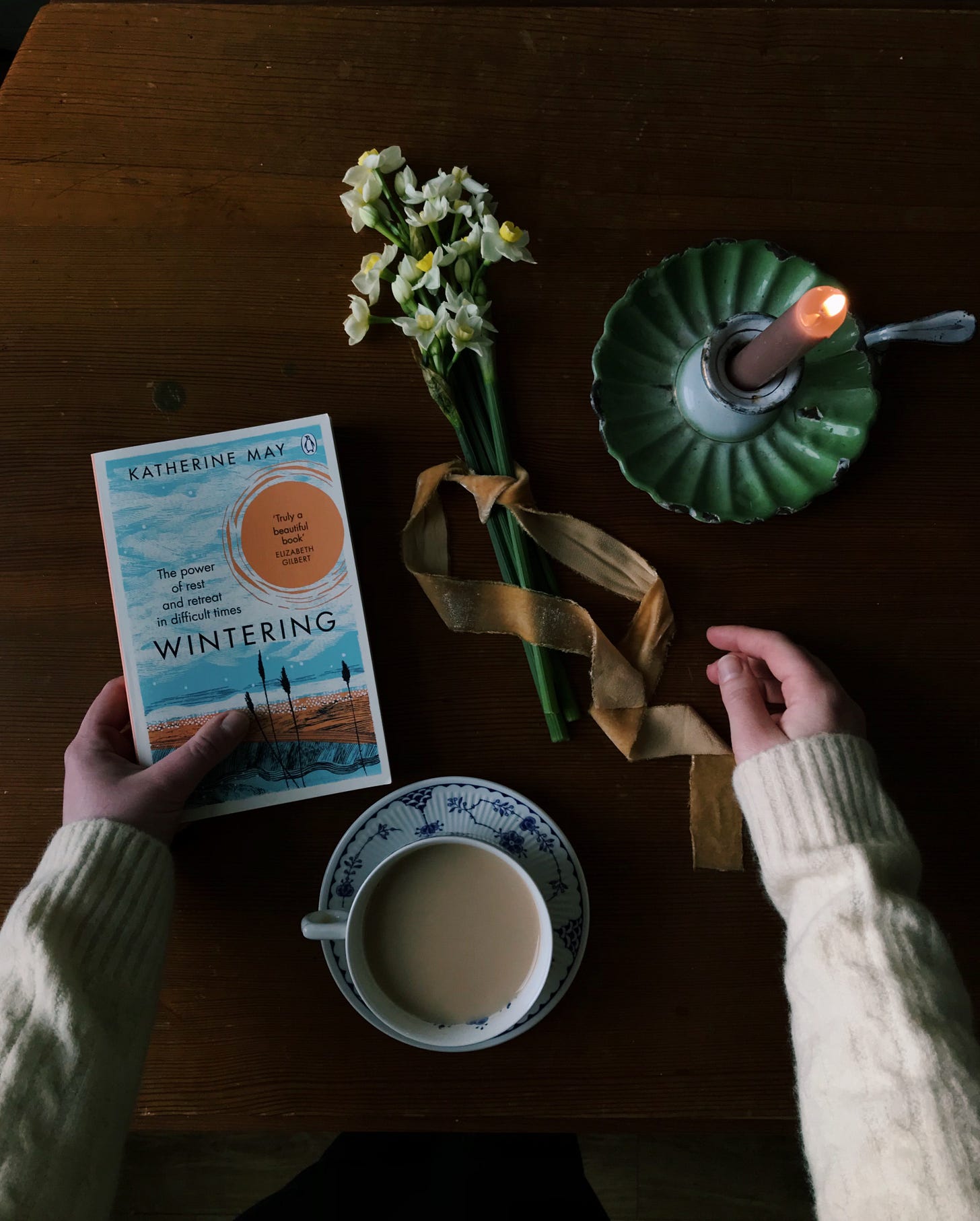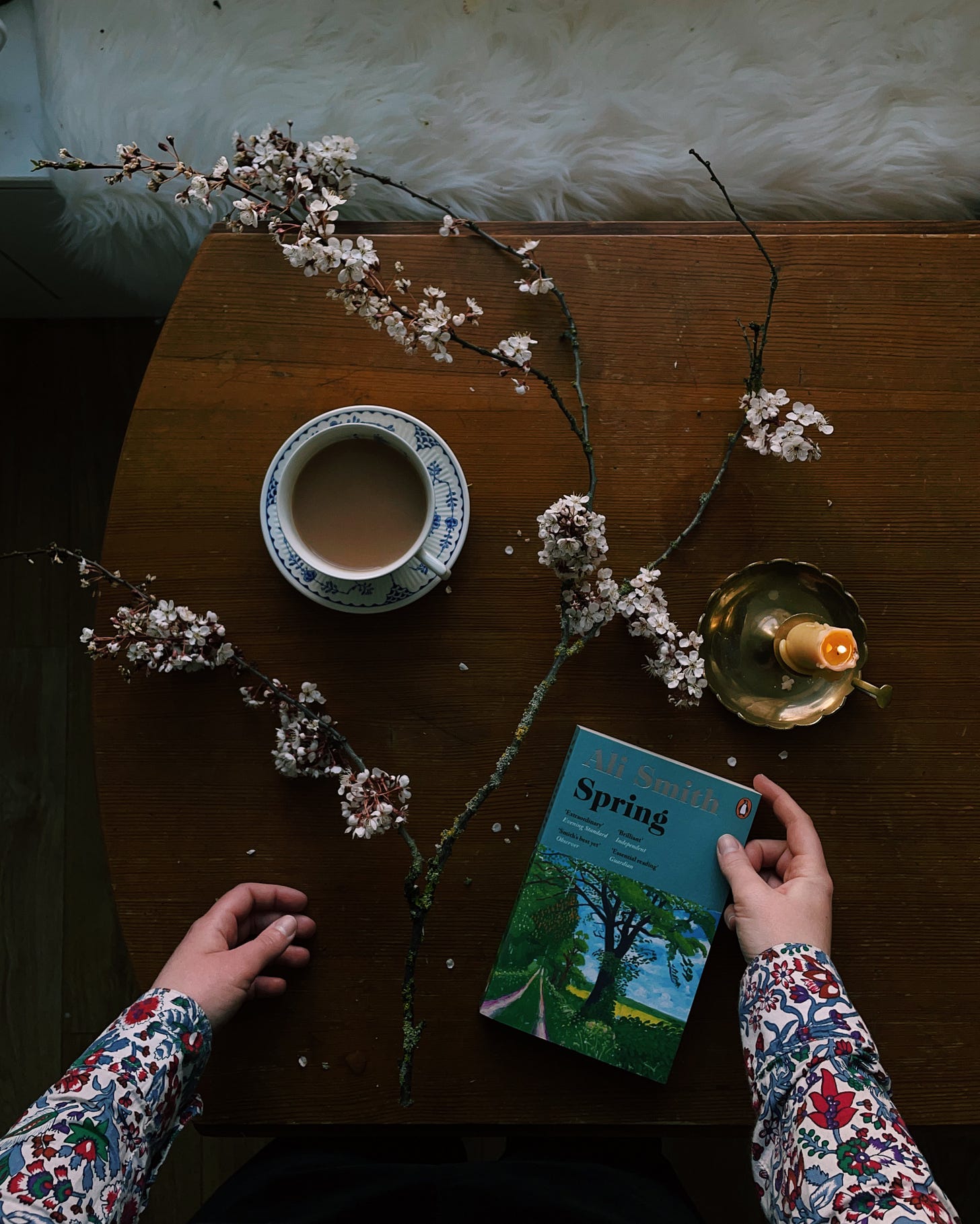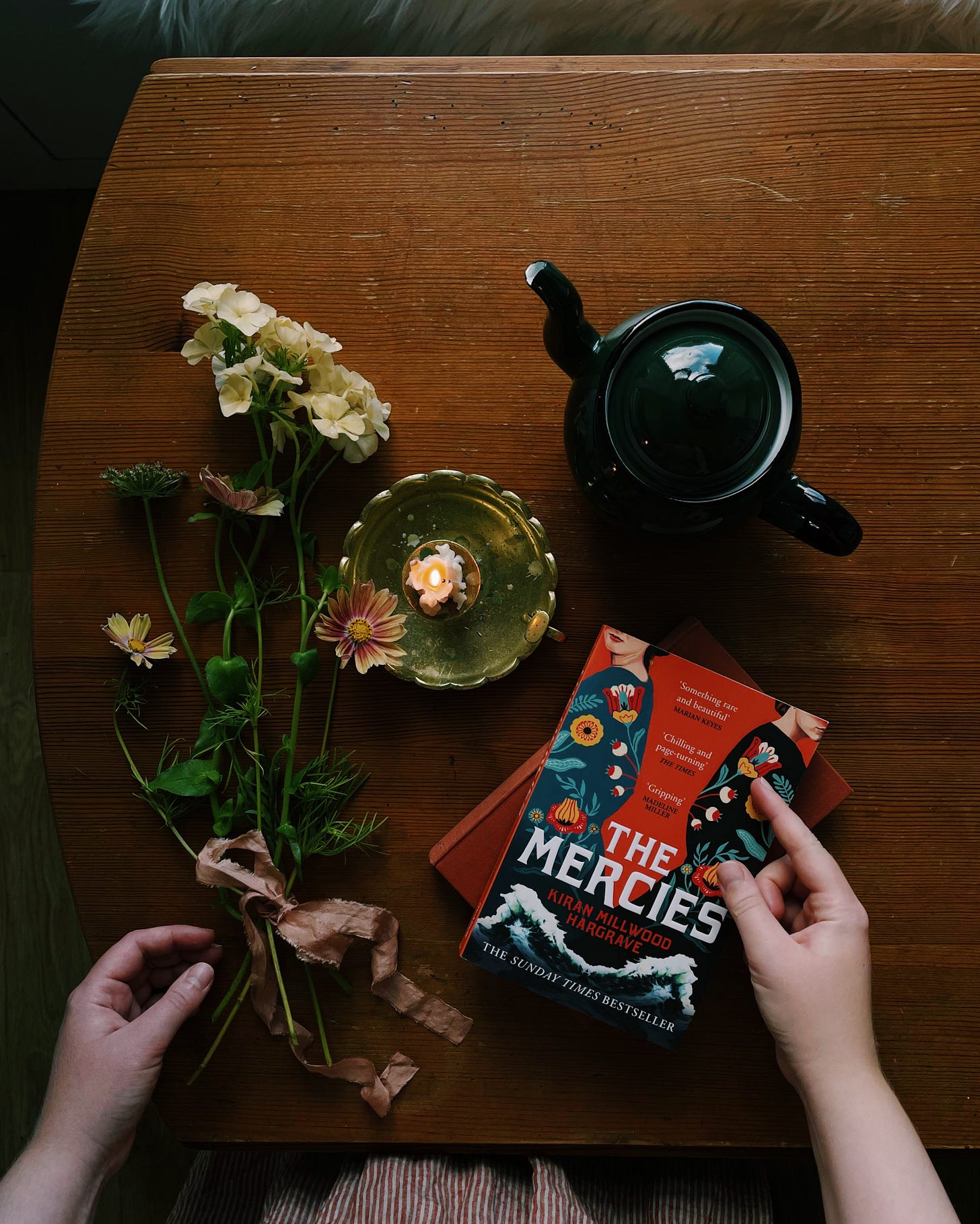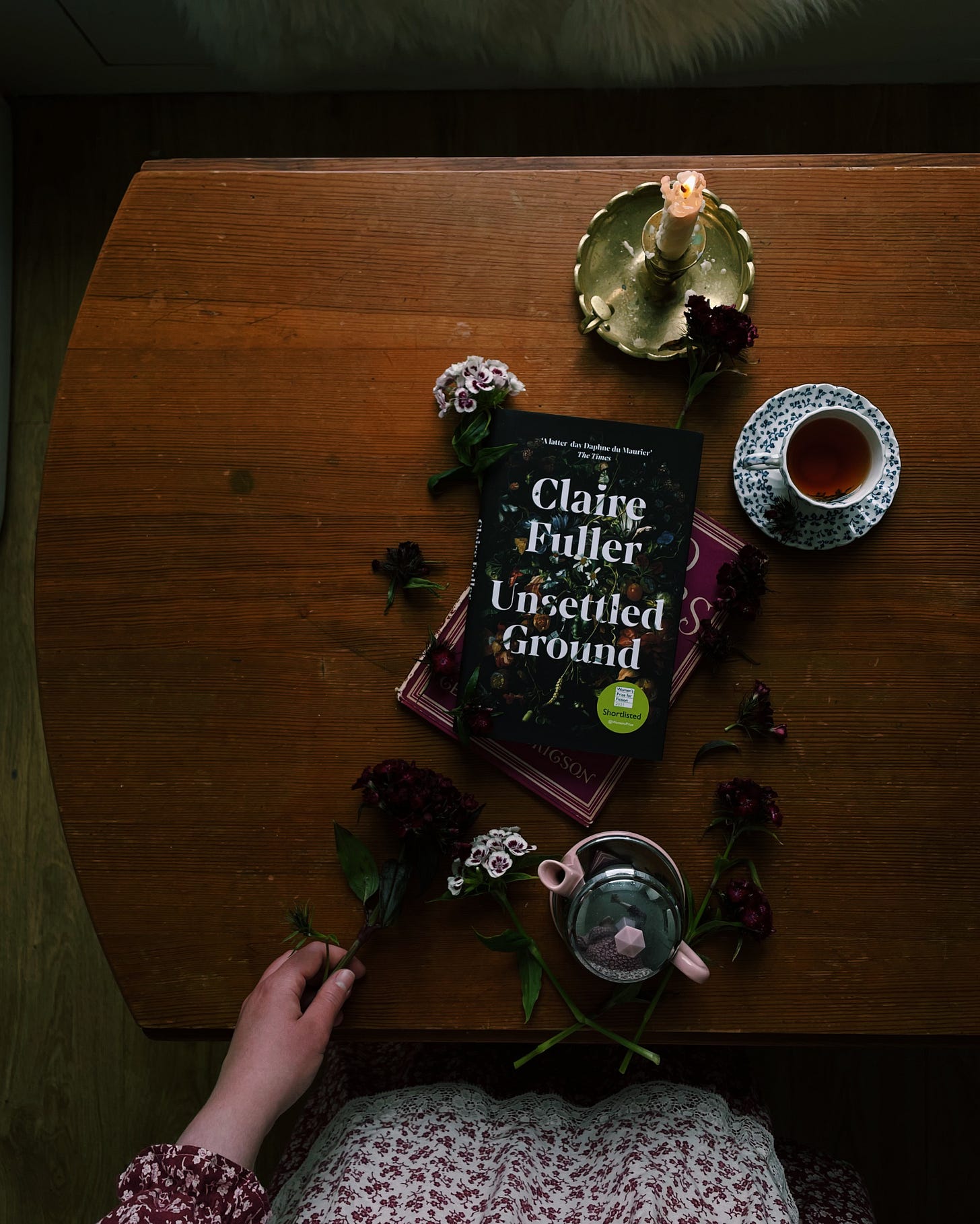Favourite Reads of 2021: Celebrating Jolabokaflod
Merry Christmas Eve, lovely readers! In my December slow living tips I mentioned the Icelandic tradition of Jolabokaflod, where families give a new book to each other on Christmas Eve and spend the evening reading together. Tonight, I’ll be curling up with a new book (‘A Scandinavian Christmas’, pictured above - I’ll report back!) a pot of tea and a tin of freshly made Pfeffernuesse.
In the spirit of Jolabokaflod, I thought it would be timely to share some of my favourite books of 2021 as a Christmas gift from me to you. I thought it might be useful to mull over in the coming in-between days, or if Santa brings you any book tokens. Although I’m an English teacher, I wouldn’t call myself an expert and I have a never-ending to be read list, but I thought it would still be fun to share some reads I’ve enjoyed this year in case you like them too. My reading recommendations have become one of my most-asked questions on Instagram since I started sharing them, so I hope you find them useful. I decided to share a favourite book from each month, as I do seem to reflect the seasons in my reading choices - as you will see! Pop the kettle on and pull up a chair for my favourite reads of 2021.
January: ‘Wintering’ by Katherine May
“Winter is not the death of the life cycle, but its crucible.” - Katherine May. Beginning the year in lockdown in the UK meant an even tougher start of the year for many than these dark months usually provide. However, I could not have timed this book better. This non-fiction read reflects on the rhythms of nature and of life, and periods of personal “wintering” for May, as well as collective Winter traditions from around the world. Her prose is both lyrical and thought-provoking and she articulates the power of rest and retreat so eloquently. I loved the parts about folklore, particularly as you know I have a penchant for the Celtic Wheel of the Year - so it was great to read someone else considering the likes of Samhain and Yule as comforting markers in the seasonal cycle. A read I will return to year after year.
February: ‘Shuggie Bain’ by Douglas Stuart
The debut novel by Scottish writer Douglas Stuart was published in 2020 and I came to it early the following year. It tells the story of the eponymous Shuggie, growing up in 1980s working-class Glasgow and the complex relationship he has with his alcoholic mother, Agnes, and with his own sexuality. The second Scot to win the Booker Prize in its 51 year history, it was a must read for me and I can see why it has been much-lauded. A challenging read at times in its pretty unrelenting bleakness but the complexity with which Stuart renders Agnes and the love at the heart of the novel kept the pages turning for me.
March: ‘Spring’ by Ali Smith
I’ve read Ali Smith’s seasonal quartet in the order of the seasons and was building up to the release of ‘Summer’ in paperback so read ‘Spring’ in the Spring, naturally! Now I’ve finished them all, of the four I think ‘Spring’ was my favourite. A story of migration, grief and hope, the teacher in me was drawn to the 12-year-old character Florence and the great sense she, and so many young people, speak if you just stop to listen. Smith depicts post-Brexit Britain in all its complexity and conflict, particularly considering relationships between the generations. I’ve relished making connections between each of the novels as characters cross paths and themes develop. A must read.
April: ‘Detransition Baby’ by Torrey Peters
Peters’ debut novel was shortlisted for the Women’s Prize for Fiction (the whole longlist is well worth a look at, several feature here!) and tells the story of three trans- and cisgender women whose lives collide. ‘Detransition Baby’ navigates the complex waters of twenty-first century motherhood and identity. I don’t want to give away too much about the plot, but it does make you reconsider how outdated our seemingly still Victorian family unit can be. It’s funny at times and devastating at times, and transported me all the way to New York City - it’s been compared to ‘SATC’, and I personally think it’s much better. Torrey Peters is definitely one to watch.
May: ‘Klara and the Sun’ by Kazuo Ishiguro
I’m a big fan of Ishiguro’s - I’d love to teach ‘Never Let Me Go’ one day in particular - so I was excited to read his much-anticipated eighth novel, ‘Klara and the Sun’. Set in a speculative future that seems, in Ishiguro style, not too dissimilar to our own present, the dystopian tale is told from the perspective of Klara - a solar powered ‘AF’ (Artificial Friend). As schooling is provided entirely online by tutors (timely!), parents who can afford to often buy their children android friends and Klara is chosen by fourteen-year-old Josie as her companion. Klara is hugely intelligent but her limited perspective lends the novel a naivety, and the reader accompanies Klara through her discoveries about the genetic engineering of children, friendship and sacrifice, raising important questions about love and human nature.
June: ‘Piranesi’ by Susanna Clarke
This was the eventual winner of the Women’s Prize for Fiction. The mysterious tale is like nothing else I’ve read: set in the fictional House with its many halls, host of statues, birds, and fearsome tides, roams Piranesi - with only the bones of the dead and mysterious Other who visits once a week for company. Piranesi’s world is rocked when he discovers signs of another visitor, who the Other warns him to avoid - for the sake of his own sanity. The novel is hard to describe further without spoiling it, and it was tough going to start with until I tuned in - but stick at it. ‘Piranesi’ makes us question truth, art, and reality itself.
July: ‘The Vanishing Half’ by Brit Bennett
Set in the Deep South and spanning the 1950s to the 1990s, ‘The Vanishing Half’ is a novel about two estranged twins who lead completely different lives. The Vignes sisters grew up in a small, Southern Black community and ran away, aged sixteen. Ten years later, one had returned and lives in the same Southern town she once tried to flee, while the other secretly passes for white, and her family know nothing of her past. Eventually, their daughters’ paths cross in the future. The novel is a fascinating exploration of race in America as well as a riveting family drama. I was hooked from the start. I went on to read ‘The Mothers’, also by Bennett, which was also brilliant.
September: ‘The Mercies’ by Kiran Millwood Hargrave
Christmas Eve, 1617. A storm envelopes the seas around the Norwegian island of Vardo, devastating the remote setting by wiping out the fishermen in an instant. The women are left to fend for themselves until a sinister figure arrives eighteen months later to bring them under control. A truly bone-chilling witch hunt ensues. Inspired by the witch trials of 1621 and the real life Vardo storm, this is a tale of the redemptive power of female friendship and explores community, love and prejudice under the patriarchy. I wasn’t a great fan of the ending (I could see it coming) but nevertheless, couldn’t put it down.
October: ‘Luckenbooth’ by Jenni Fagan
This was a very generous and well-chosen birthday gift and I’m now Jenni Fagan’s biggest fan. ‘Luckenbooth’ is set in a tenement in Edinburgh upon which Jessie sets a curse in 1910 that spans the century. The novel expertly weaves the stories of the various inhabitants of 10 Luckenbooth Close through the years and many misfortunes. Finally the building’s secret - what happened to Jessie - is revealed. It’s a novel about trauma and revenge, in which Edinburgh becomes a character in itself - or, I’m tempted to say, herself. I read ‘The Panopticon’ quickly after, which I also heartily recommend - Jenni Fagan has such a talent for gritty, memorable characterisation.
November: ‘Pine’ by Francine Toon
An empty house. A dark forest. Wild animals and ghosts haunt the Scottish Highlands. Another impressive debut, ‘Pine’ by Francine Toon is the perfect Autumn/ Winter read. Another young protagonist at the centre of the story (a trend in my reads this year!), Lauren, lives with her Father Niall near the Moray Firth. Lauren’s Mother disappeared when she was just a baby and Niall drinks heavily to dull the pain, neglecting his daughter. The story soon escalates into thriller territory when the decade old mystery develops and intensifies. Toon manages to capture the simultaneous adventure and claustrophobia of a rural childhood. Her prose is economical - and all the more chilling for it.
December: ‘Bitter Orange’ by Claire Fuller
Claire Fuller was on my radar after reading her wonderful ‘Unsettled Ground’ earlier this year (also on the Women’s Prize shortlist and heartily recommended) and I was drawn to her earlier novel ‘Bitter Orange’, which was the perfect read for this dark time of year. The novel transports you to languid Summer days, set in 1969 in a dilapidated country mansion. It is told from the point of view of Frances Jellico on her deathbed, as she gradually unravels her obsession with the couple Peter and Cara she meets at Lyntons and their fearful fate at the end of that hot Summer. It reminded me of ‘Atonement’ in its exploration of fantasy, reality, guilt and the search for forgiveness.
I hope you all have a wonderful festive season with lots of time for reading and slowing down to savour wonderful words.

